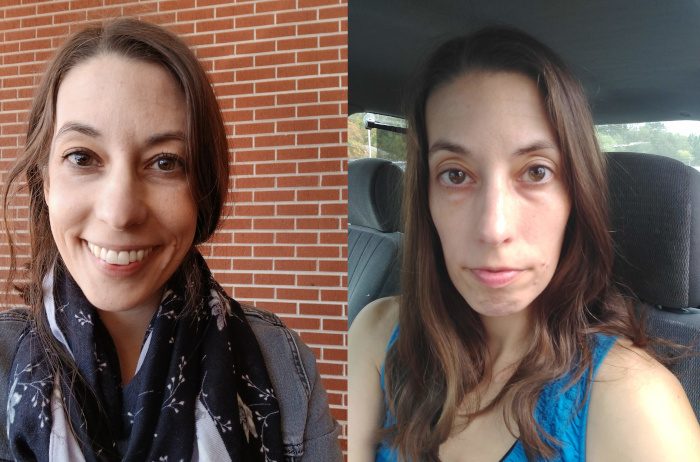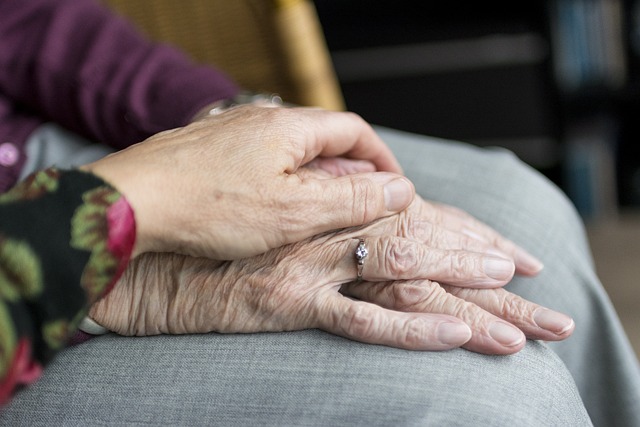Let’s get real right upfront: It’s tricky to stay connected to yourself and pursue your own path while providing care for other humans day in and day out.
If you’re a professional health care worker (such as a doctor, nurse, therapist, counselor, or social worker), or a family caregiver supporting children or elders, then you know what I mean.
It’s not just the long hours and high demands; you know how to run on autopilot with those. What bothers you is something deeper than physical exhaustion. It’s a kind of soul weariness. You’re weary and worn from trying to help others and “have a better life” at the same time.
True, it doesn’t help that most days there’s crazy time stress. You yearn to be free to work and live on your own schedule. But when you do have downtime, it doesn’t actually feel relaxing. (To quote one of my clients, “Weekends leave me exhausted, am I doing them wrong?”)
If you’re like me, you’ve been taught to work extremely hard and ensure that no one else feels too uncomfortable. You’ll do their discomfort for them! But this self-sacrificing pattern is costing you the chance to go after your own creative dreams.
There’s an important project you want to get done, a passion you want to pursue. You may not know precisely what it is yet, but you can feel it tugging at your sleeve. But how are you supposed to make progress on that, while juggling everything else?
You feel SO responsible for keeping it all together and providing care, yet sometimes you also feel like the biggest failure on the planet.
Other people see you as capable and competent, but self-doubt dogs your heels. At times you have this sense of “Oh, I’m in big trouble!” The other shoe’s about to drop, and the fear is huge. It’s like the pit in your stomach has no bottom. One mistake, one perceived failure, and it all falls apart.
That’s part of what keeps you going: the fear of failing. Another part of it is that at this point, the overwhelm is a way of life. You’re already doing a lot, but it doesn’t really register; your default setting, “I should be doing more.”
When the helper needs help
I get it. I’ve been there. As the older sibling to an autistic brother with high support needs, some of my earliest memories involve helping our mother search the neighborhood when he ran away.
In high school, I had a packed academic, athletic, and volunteer schedule. At college, I earned honors while working three jobs.
After graduation, I served as a live-in direct caregiver for adults with special needs, then also supervised the staff. From there, I became a program director, spearheading the opening of a new home and overseeing two households.
After that, I became a coach for recovering perfectionists, and had two children in two years. I published my first book between kids, recording the audiobook while 8 months pregnant. (Note to self: never do that again.)
And then a rare genetic condition stopped me in my tracks, and made me take a hard look at how I’d been living. Here’s what I realized: I was not caring for myself at anywhere NEAR the level I cared for others. And that had to change.

Left is me feeling well; right is me during a prolonged fever
Growing up, most of us were never taught how to take care of ourselves on all levels. As humans we exist on four levels: physical, mental, emotional, and spiritual. But we’ve only ever been taught to care for ourselves on one or two levels!
Is it any wonder that we feel like something’s missing? Is it any wonder that we may fantasize about ending up in the hospital, or going to rehab, so we can have space and support to heal?
We all learned how to bandage physical wounds so as to facilitate the body’s healing process, but how many of us learned how to deal with frightening thoughts, or how to handle huge sadness, anger, and fear? Did anyone demonstrate exactly HOW to handle false guilt, or how to be comfortable in our own skin?
No, dear reader, they did not…because no one taught them, either. But that changes now. Come learn the tools to care for your own true self, even as you care for others. Come reconnect to your purpose…the one that’s buried beneath the weight of expectations.
Here’s what we’ll cover…
Join LIVE on Tuesday, March 18th at 10am CDT

Sometimes simply showing up & holding someone's hand is everything.
This class is designed to help you reconnect to your purpose right now – NOT after everyone else is taken care of, or all your ducks are in a row. If you wait for that, you’ll wait your whole life. The time is now.
The more efficient way to access your purpose is to gently subtract all the stuff that’s piled on top of it: the unprocessed anger, grief, fear, and what I call “high functioning hopelessness.” When we know how to resolve those core issues, our innate confidence emerges.
Here’s the concept in a nutshell: “When we apply love to the parts of ourselves that hurt, we heal.” That’s been my experience, at least. But the concept doesn’t do much good unless you apply it.
Lucky for you, knowing how to apply it in real life is my specialty. I’ve spent the past seven years helping recovering perfectionists live on purpose, loving themselves first and then others. (This might sound shocking, but it’s actually a win-win.)
This will be an interactive class, and it runs for one hour. We’ll begin with a few key teaching points, then move to live coaching and Q&A. To ask a question in advance or request coaching, email me at caroline[AT]carolinegarnetmcgraw[DOT]com.
If you can’t attend live, rest assured: registration gets you replay access. But do your best to make it – because it’s a richer experience. Plus, at the end of the class, I’ll announce a special coaching offer for caregivers only.